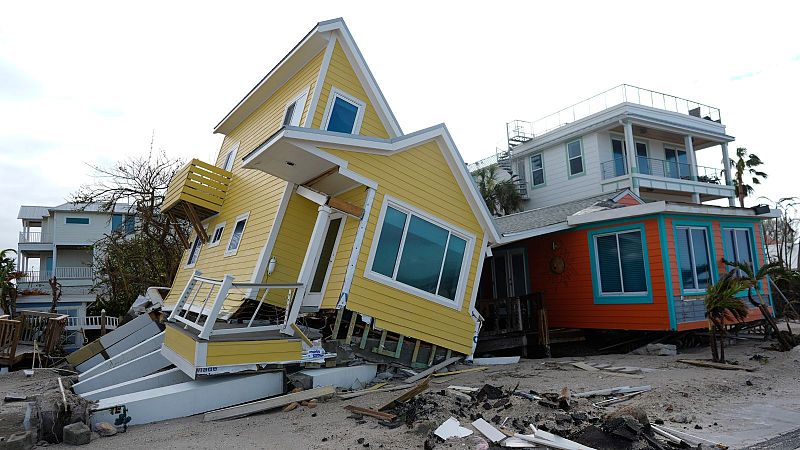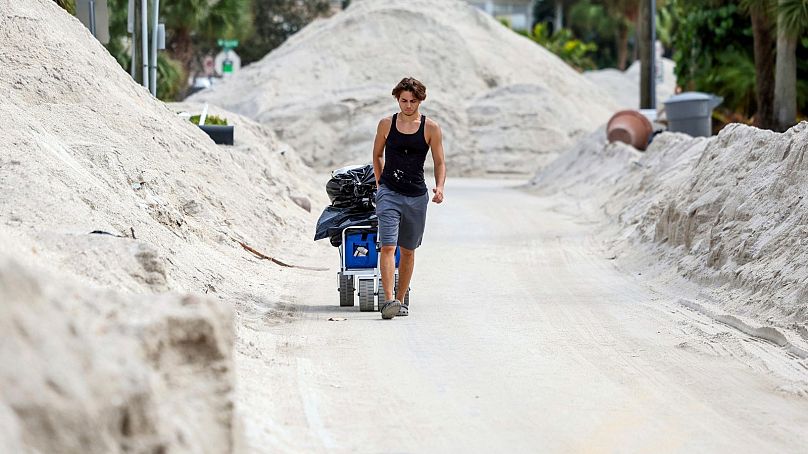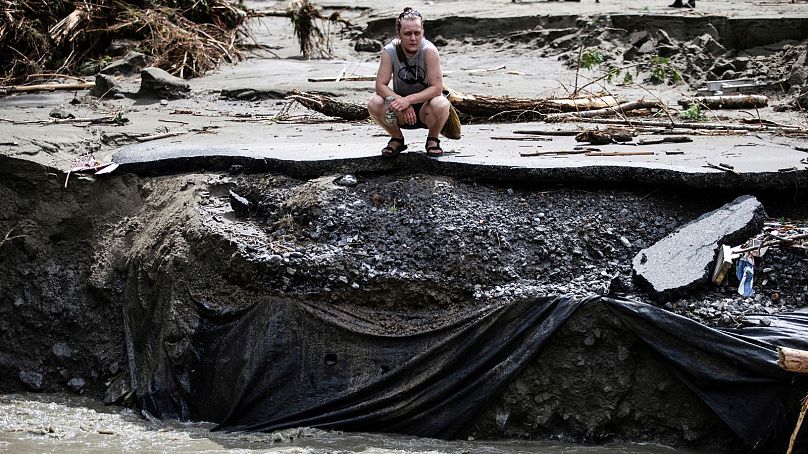
Hurricanes Helene, Milton and Beryl caused so much destruction last year that their names are being retired.
The World Meteorological Organization on Wednesday officially replaced the names of the trio of 2024 storms that killed more than 300 people and caused more than $119 billion (€107bn) in damage.
Brianna, Holly and Miguel take their place in the rotating six-year list of names for Atlantic storms set in advance by a committee of international meteorologists.
The names are repeated every six years, unless a storm is so deadly that its name is retired. This killer list is now approaching 100.
How destructive were these 2024 hurricanes?

Helene was by far the deadliest and most expensive of the trio with its flooding claiming 249 lives, the most in the United States since 2005's Katrina.
It also was the seventh most expensive storm in American history, with damages reaching $78.7 billion (€70.9bn), according to the National Hurricane Center.
While it came out of the Gulf and hit Florida's Big Bend region as a Category 4, most of the deaths and damage were inland in North Carolina and South Carolina.
Milton came on the heels of Helene, bringing high winds, flooding and tornadoes to cause $34.3 billion (€30.9bn) in damage, almost all of it in Florida. It caused 15 fatalities.

Beryl, which in June became the earliest Category 5 storm to form in a season, killed 68 people in the United States, Grenada, Venezuela, Jamaica and St. Vincent and the Grenadines.
In the Pacific region, the name Jack is replacing John, a Category 3 storm that killed 29 people in Mexico.
Early warnings reduced death tolls, WMO says
"The work of the Hurricane Committee is critical to ensuring that everyone in the region across the Atlantic and east Pacific basins is ready for the upcoming 2025 hurricane season, providing early warnings for all and reducing the impacts to life and property from these dangerous storms," says Michael Brennan, chair of the Hurricane Committee and director of the Regional Meteorological Specialized Center Miami.
The WMO notes in particular that when Beryl struck, loss of life in the most devastated areas was fortunately limited by accurate advance forecasts and coordinated regional and national disaster risk management.
Although early warnings have dramatically reduced fatalities, economic losses are rising. This is why tropical cyclones are one of the main priorities for the UN’s Early Warnings For All initiative.
“Whilst the USA bears the biggest outright economic losses, Small Island Developing States and fragile economies suffer disproportionately,” adds WMO secretary-general Celeste Saulo.







